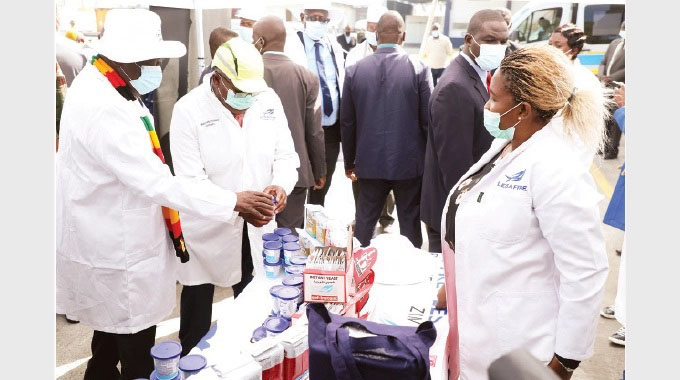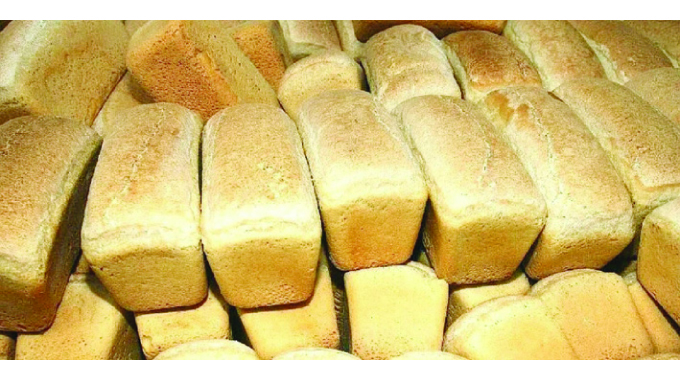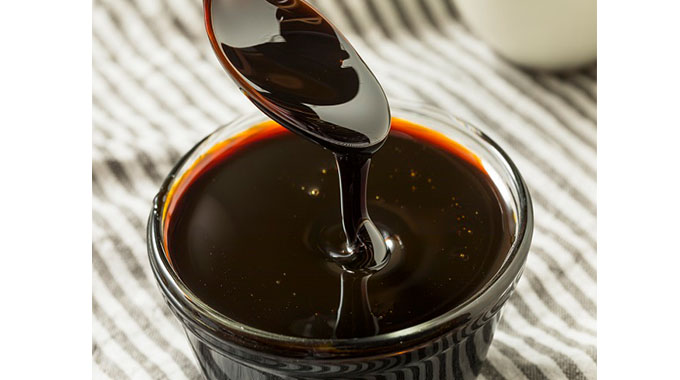US$13 million plant upgrade increases Lesaffre gains

Patrick Chitumba, Midlands Bureau Chief
YEAST manufacturer, Lesaffre Zimbabwe, has to date channelled US$13 million towards upgrading its plant and equipment, which has helped the company increase production capacity.
The company seeks to expand its operations into more Southern African Development Community (Sadc) countries after successfully entering the Zambian and Malawian markets.
Currently, the firm supplies yeast and premixes into the baking and brewing industry, as well as waste management companies.

President Mnangagwa is shown some of the products manufactured at Lesaffre Zimbabwe by the firm’s general manager, Mr Munyaradzi Richard Mutsvairo ,(centre) and sales representative Susan Mateko-Pedro (right) during a tour of the three companies in Gweru yesterday.
Lesaffre Zimbabwe is a subsidiary of French-owned Lesaffre global and since 2015, its operations have been strengthened to better serve the baking industry.
The company has offices in Harare and Gweru, and sales depots in Harare, Bulawayo, Gweru and Mutare.
It has 165 workers including at least 13 students on attachment at the production, quality control, finance and supply chain.
Lesaffre Zimbabwe general manager, Mr Munyaradzi Mutsvairo, who met President Mnangagwa during his visit to companies in Midlands province last week, said the company was now operating at 75 capacity following the upgrading of its plant and equipment.
He said they have invested heavily in plant and equipment to meet international standards for yeast production.
“Lesaffre has invested US$11 million in the factory upgrades that is upgrading plant and equipment.
Another US$2 million was invested in the 2 007ha farm in Gweru (centre pivots tractors and machinery),” said Mr Mutsvairo.

Money – Image taken from Pixabay
He said the yeast factory is connected to the farm through a 14km effluent pipeline.
Mr Mutsvairo said effluent is rich in potassium fertiliser for the 410ha under centre pivot irrigation and 1600ha for pastures.
“Field crops for seed maize, soya bean, tobacco, potatoes (summer) and sugar bean seed and winter wheat 200ha are under the CBZ-Agro-yield scheme.
“We also have 210ha irrigated rye and star grass pastures to sustain 1,012 herd of beef.”
“We have a virtuous circle from the plant to yeast production and from the effluents to plant crops. Our social responsibility extends to taking students on attachment, training orphans on baking at our baking centre and providing bread daily to the Midlands Children’s Home in Gweru,” said Mr Mutsvairo.
He said Lesaffre’s mission is to partner the baking industry through the provision of yeast, premixes and providing baking training.
“On the strength of our expertise in bread making, Lesaffre’s mission in Zimbabwe is to partner with the baking industry.

bread
“Lesaffre Zimbabwe is the single yeast supplier for the local market and has excess capacity for expansion and exports. Yeast forms a critical two percent inclusion in the bread recipe,” said Mr Mutsvairo.
He said the company supplies 65 percent of the craft and in-store bakeries’ needs in premixes, which include technological solutions to support bakeries operation and bread quality.
Mr Mutsvairo said the baking centre in Harare has a panel of experts to offer solutions and support industrial and craft bakeries.
“Functioning as incubators for new bread making practices, the baking centre supplies technical assistance with product and processes development and tailored training. The baking centre was commissioned by President Mnangagwa,” he said.
Mr Mutsvairo said the company produces Fresh Yeast (FY) and Dried Yeast (DY) enough for the local market and excess is exported.
“Every week we have a truck going to South Africa and the other going to Zambia,” he said.
Mr Mutsvairo said molasses from Hippo Valley is used as a raw material and constitutes 60 percent.

molasses
Imported raw materials, he said, include enzymes, emulsifiers, salt, preservatives, ascorbic acid and packaging.
“This year we have retained some of our wheat for use in our premix business,” he said.
“Business challenges include the importation of fresh yeast from Zambia that threatens our investment, eats into our local market, wastes our Zimbabwe’s scarce forex, exports jobs to Zambia, threatens our job security, local production support is not secured.”
Mr Mutsvairo said the company has an outstanding bill to France of US$12 million.
“US$5 million was approved by RBZ as blocked funds and we have been promised US$5 million worth of Treasury Bills with varying maturities,” he said.
“The outstanding US$7 million is our own obligation to repatriate to France, which certainly constrains our ability to upgrade the factory from the current 75 percent.
“Local and import price increases hit us strongly with an obligation to pass it on to customers. Exchange rate instability and inflation make planning very difficult.

Reserve Bank of Zimbabwe (RBZ)
“Molasses constitutes 60 percent of our raw materials and price is regularly increased by Hippo Valley. NRZ transport cost makes our raw materials expensive (molasses and coal).”
In 2016, the French yeast giant, Sociètè Industrielle Lesaffre (Lesaffre) acquired a 60 percent stake in the firm, formerly known as Anchor Yeast, which has subsequently rejuvenated its operations through multimillion cash injection.
Since the acquisition, Lesaffre has also commissioned a baking centre in Workington, Harare to offer expertise in baking through training, technical support, product and process development and commercial presentation of the products.
The baking centre is expected to play a pivotal role in the development of the baking industry in Zimbabwe and the region through innovation, research and development and provision of appropriate training.











Comments